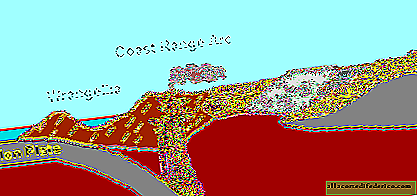"Universe-25": why paradise living conditions will lead to extinction
American ethologist John Calhoun, along with specialists from the National Institute of Mental Health, conducted an interesting experiment in his laboratory called "Universe-25." He decided to test how the mouse population would develop if placed in ideal conditions. Unfortunately, Universe-25, like 24 similar experiments, ended in failure - the rodent population died out. Let's see why this happened.
In July 1968, John Calhoun built the perfect mouse house in the lab. It measured 2.57 by 2.57 meters and reached 1.37 meters in height. Four pairs of mice were released into it, for which they created paradise conditions: comfortable minks, unlimited food and water, a constant comfortable temperature of +20 degrees, cleanliness in the room, and the absence of predators. The condition of the wards was also monitored by experienced veterinarians, so outbreaks of diseases were excluded in the mouse paradise. According to experts, this box could accommodate more than 3,500 rodents without the constraint of its inhabitants.

The mice began to multiply actively, and their number doubled every 55 days. But after 315 days from the start of the experiment, population growth slowed down, the number of mice doubled only after 145 days. When the mice became about 600 individuals, they were already cramped, although they still had enough food and water, and the population density limit was not reached. And here scientists began to observe the first problems that arose in a mouse society. Among the mice, social stratification began, rogue mice appeared that lived separately and to whom other representatives of the mouse paradise were aggressive.
In ideal boxing conditions, mice began to live significantly longer than in a natural habitat full of hardships and dangers. As a result of this older generation, it became more and more, and they began to oppress the young generation, which had recently been born. Males became passive and did not try to protect their females and cubs. Females, in response, began to assume the functions of males, protecting the cubs, but their aggressiveness eventually spread not only to external enemies, but also to their own children. Females often killed mice or abandoned them, not wanting to take care of their offspring anymore. Child mortality has increased.

After some time, males and females appeared in the population, who showed no interest in breeding at all and led a reclusive lifestyle. And on day 560 of the experiment, the mouse population entered the final stage - the extinction stage. Among males, individuals began to appear, which the scientists nicknamed "beautiful." They showed no interest in females, and they preferred not to communicate with other members of society. They only ate, slept, licked their skin and were very passive, and they did not care about other mice. On their body there were no signs of fights or squabbles, and therefore they got their nickname. A little later, females with similar behavior appeared, and soon “beautiful” males and “single females” began to prevail in the mouse population. Further degradation of mouse paradise consisted in the complete abandonment of mice from reproduction, the appearance of homosexuality and cannibalism (this is with an excess of traditional food), unjustified aggression. The experiment ceased in March 1972, when only individuals left the reproductive age remained in the population.

John Calhoun drew the following conclusions from this experiment. The competition between young and older (weak and strong) individuals led to an increase in aggression and a decline in spirit, which contributed to the refusal of the mice to fulfill their social roles. Following this came the inevitable physical extinction.
Of course, such experiments were not conducted at all in order to find out how long the mice would live in heavenly conditions, but in order to draw parallels with humanity. At that time, sociologists and economists were worried that a significant increase in population was observed in many countries. It is precisely in connection with the problem of overpopulation that this experiment was conducted.


















